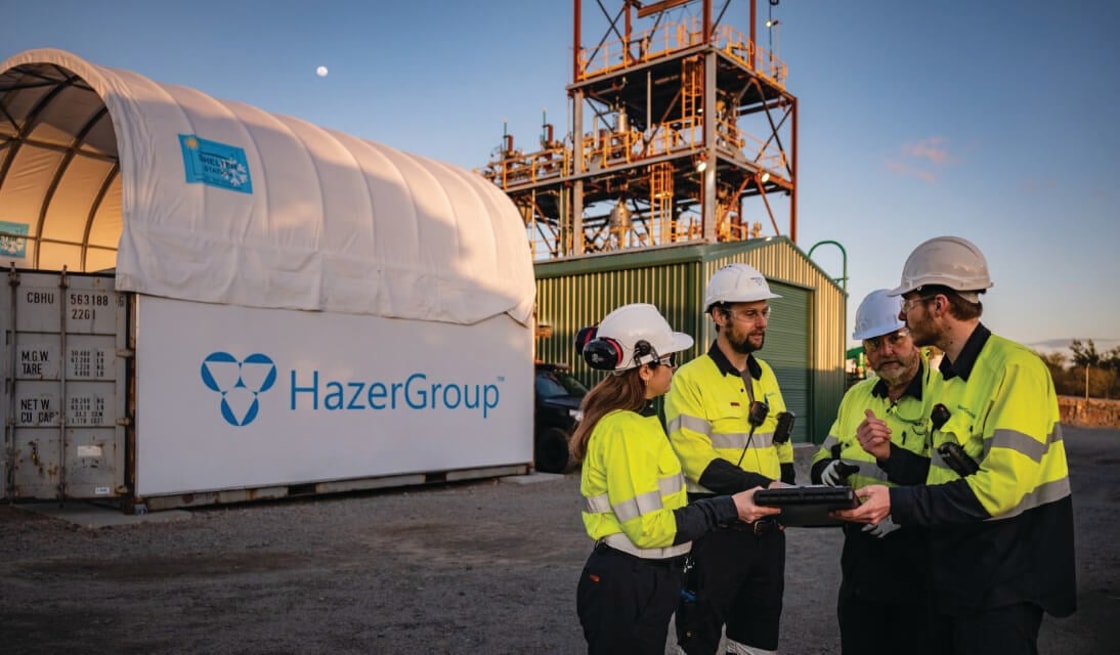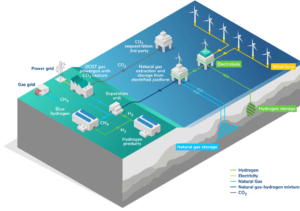
UK gas storage firm EnergyPathways said it had started design work with Australian methane pyrolysis firm Hazer Group and its EPC partner KBR for a plant that will produce hydrogen from natural gas, while generating solid carbon rather than carbon dioxide.
The project could be built as part of EnergyPathways’ planned Marram Energy Storage Hub (MESH), which aims to store up to 50 billion cubic feet of natural gas and hydrogen 18km off the Lancashire coast.
Under an agreement signed in July, Hazer’s plant could produce up to 20,000 tonnes of turquoise hydrogen per year from natural gas and unprocessed iron feedstocks for ammonia production.
EnergyPathways and Hazer have also been exploring potential offtake for the up to 60,000 tonnes of graphite produced by the process, which can be used in a variety of applications.
Hazer and KBR are leading the engineering design and concept development studies for the project, which are expected to be completed in early 2026.
Under original plans, MESH intended to host blue and green hydrogen production. However, this new deal signals a shift away amid high costs.
“With … blue and green hydrogen looking increasingly challenged by high production costs, EnergyPathways aims to develop a hydrogen production pathway and decarbonisation solution that could be more affordable to Britain’s taxpayers and energy consumers,” said CEO Ben Clube.

Original MESH plans © EnergyPathways
Methane pyrolysis is slated as a lower-cost clean hydrogen pathway due to its solid carbon output, which can be monetised.
“With the UK 100% dependent on imports for its graphite needs, and China dominating global supply with over 80% of market share, the British government… [is] actively seeking to secure [its] own graphite supply chains,” Clube added.
However, the technology remains relatively nascent, with few plants operating globally.
Hazer began production with its technology at its pilot site in Perth, Australia, in February 2024.
CEO Glenn Corrie said integrating the firm’s technology into the MESH project represents a “genuine game-changer” for UK energy transition plans.

